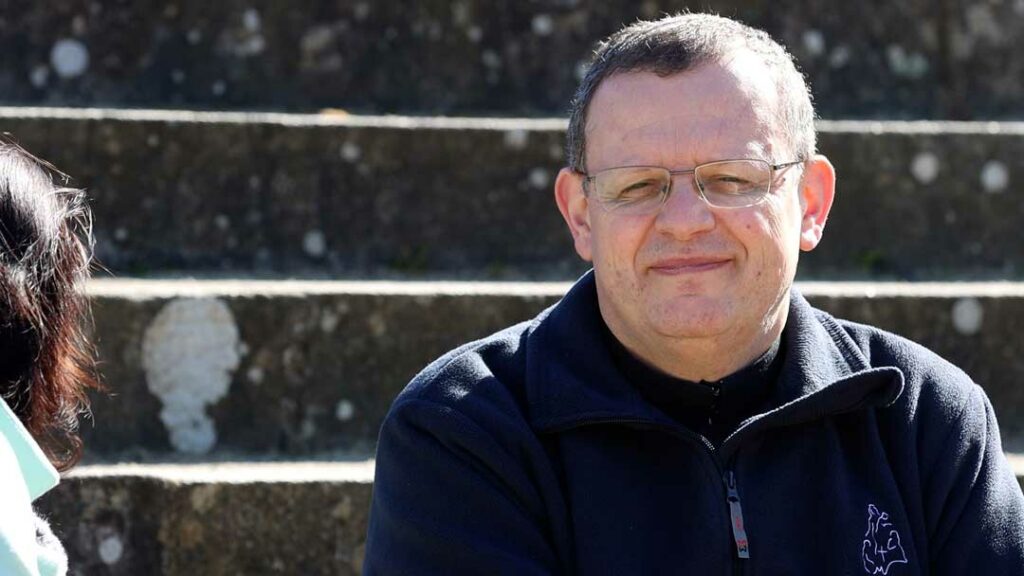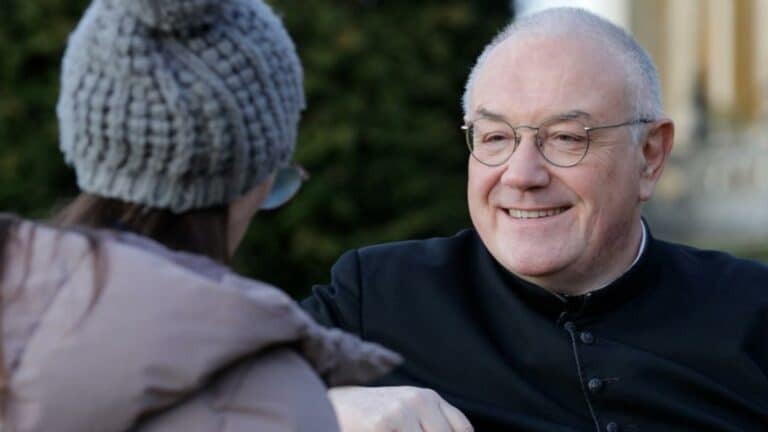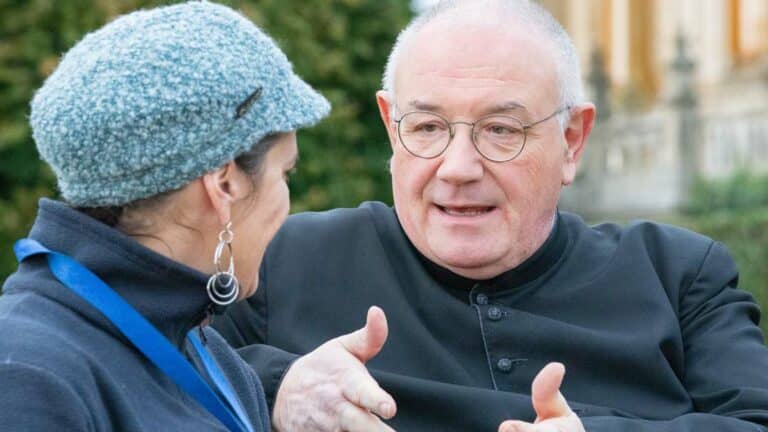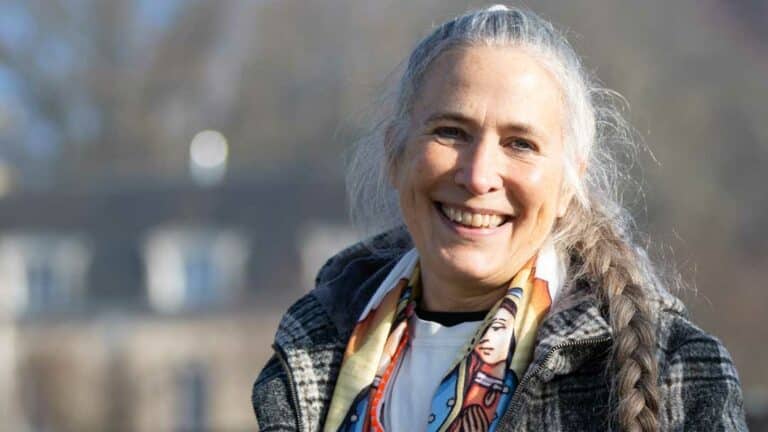Can we remain impacted by our ancestors’ sins? The subject of whether the consequences of sin are transmitted from one generation to the next raises a number of questions. Are we responsible, one way or another, of the actions of those before us? In particular, do we have a part to play to repair those consequences. To discuss this further, we met don Thomas Lapenne, chaplain at the shrine Notre-Dame de Montligeon, in our program Sanctuaire Normand on RCF.
Can we inherit the consequences of our ancestors’ sins?
In a way, yes, we can, as for the original sin. According to what the Church teaches us, there is a sin that was passed on to us from the moment of our conception. When we were born we became part of the human family and made jointly liable of its wounds, in particular through our first parent’s wrong.
Even if we were not the authors of such fault, we have inherited it, like a bad inheritance – or a bad atavism.
Just like a defective gene or a birth defect can be transmitted through the body, or like emotional or psychological injuries can be passed down to the next generation, the Church teaches that the same applies in spiritual life: the original sin harms the heart of each newly born human being.
Each one however remains responsible for their own actions. I am liable for any harmful thing I do. If my grand-parents did something wrong, their grand-children don’t bear it as fault. The liability for the fault is not transmissible.
Are we punished for our ancestors’ sins?
This is not a punishment in the sense of a revenge or a weight that would drop down upon us unfairly. We will not automatically have to endure evil just because our ancestors did something wrong. On the other had, there may be something that Pope Jean-Paul II used to call “structures of sin”. He meant an environment, a cultural background, education or society warped by bad habits, vices or sin – whether against God or against the love for our neighbor. Such environment may then influence us and even hinder our momentum in our pursuit of goodness. This is no punishment but a context that may slow down our spiritual growth, because we have not received all the landmarks or the necessary impulse to choose goodness.
Do historical injuries still impact us?
The collective scope of individual sin
Yes, they definitely can. The bad choices made in the past, such as slavery, wars, jealous behaviours, etc. may still have lasting consequences. Those sins against human dignity may continue to have a negative impact in our societies – in terms of resentment, exclusion or unfair treatment of some people.
Our mindset is influenced by those situations. We may inherit them without realizing it. Although we shouldn’t regard our predecessors as solely responsible. We are free to question such inheritance, or challenge certain misconceptions and make other choices.
When we sin, it is always as an individual. Our actions stem out of a free choice – a bad action, a disorderly desire, a thought or an omission to to the right thing. This is part of individual responsibility. However, our actions always have an impact on other people.
As Pope Benedict XVI used to say: “No one ever lives or sins on their own”. Our actions have consequences on the people around us, whether they are good or bad. In Journal d’un curé de campagne, (Diary of a Country Priest), Bernanos wrote that even our most secret sins, like our thoughts or desires, pollute the atmosphere in which other people breathe.
Therefore, we are required from within to choose the good, not only for ourselves but for those around us too. This is even more true if we bear responsibilities within our family or a community – or the Church. A bad personal choice may drive a whole group with you into evil.
Can we repair the wrong done in the past?
We can and we can’t. We cannot in the sense that we are not liable for other people’s wrong-doing. But we can because we are jointly involved. As members of the same human family and the same Church, we can do some good to others, including those who did wrong things and who have died. We may offer charitable actions, or alms, especially mass – which is the greatest act of charity – for their salvation.
It is a way to atone, that is to say, to repair. Whilst everyone remains liable for their actions, we can help them on the way to conversion and repair.
The power of mass and prayer for the deceased
Prayer and mass are offered for the cleansing and healing of the souls of the deceased. They are very efficient to make amends and atone for any wrongdoing – Mass in particular, as it is based on Christ’s sacrifice, which is the source of any mercy and any forgiveness.
At mass, Christ bears the consequences of sin and erases them. We partake in his prayer, which is what allows us to make amend for the harm caused by sin, including in our ancestors or in the souls in purgatory awaiting our prayer.
What about offering indulgences to make amends?
That’s a major question. Indulgence is a way to make amend. Tjere are several means, like mass, acts of charity, sacrifices offered with love. Love and forgiveness do make amend.
Indulgences are a grace granted by the Church, by drawing into Christ’s and saints’ merits, in particular during a jubilee year such as 2025. They allow for the debt connected to sin to be remitted. Wherever a relationship was damaged by some misconduct, an indulgence restores justice through divine mercy.
It is through the merits of Christ and of the blessed – which are the Holy Spirit’s work – that the consequences of the evil done are amended. In that way, an indulgence is a way to be part of the past wrongdoing from our ancestors.
Some fruits are visible at the Shrine
Such is Montligeon’s grace: becoming aware of the communion of saints. We remain connected to our departed loved-ones and we can do them good. By registering them at the Fraternity, by requesting perpetual mass to be celebrated or by praying for them through Marie’s intercession.
Many people leave the Shrine feeling reassured. They say: “Someone is looking after my deceased.” Christ, as well as the Church in the communion of saints work to redress our deceased’s wrongs. This soothes their sadness caused by separation and even some pains connected to the past.
Knowing that we are not the only ones to bear the burden is really comforting, and also having Mary, Our Lady Liberator, at our side to help us enter peace.
We can do our part
No, we are not responsible for the faults of our ancestors. But yes, we can bear the consequences. And above all, we can respond to them through prayer, the offering of the Mass, charity and indulgences. The Church gives us the spiritual means to get involved in a reparation process, at the very heart of the communion of saints.
Register your departed loved-ones to perpetual mass or join a prayer group for the souls in purgatory. Together, let’s respond to Christ calling to repair what was harmed by sin, through love.




